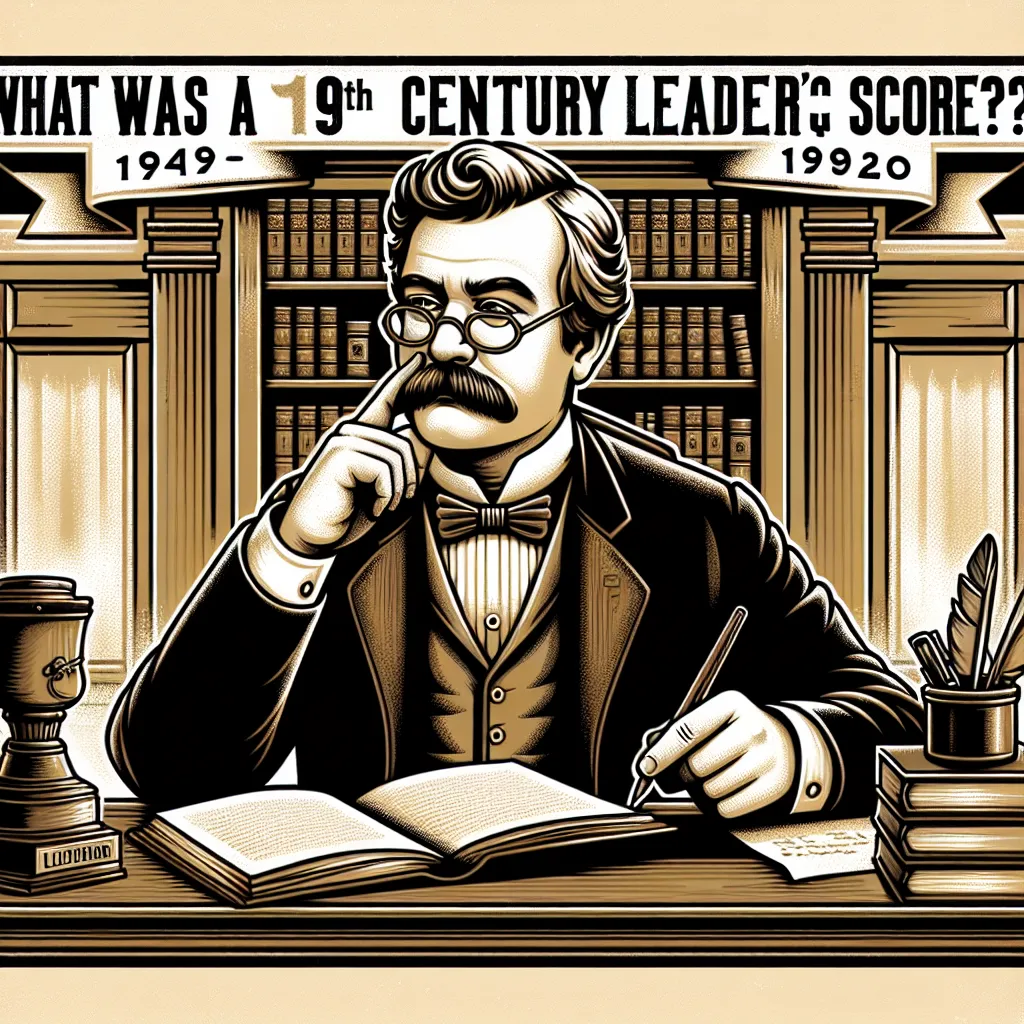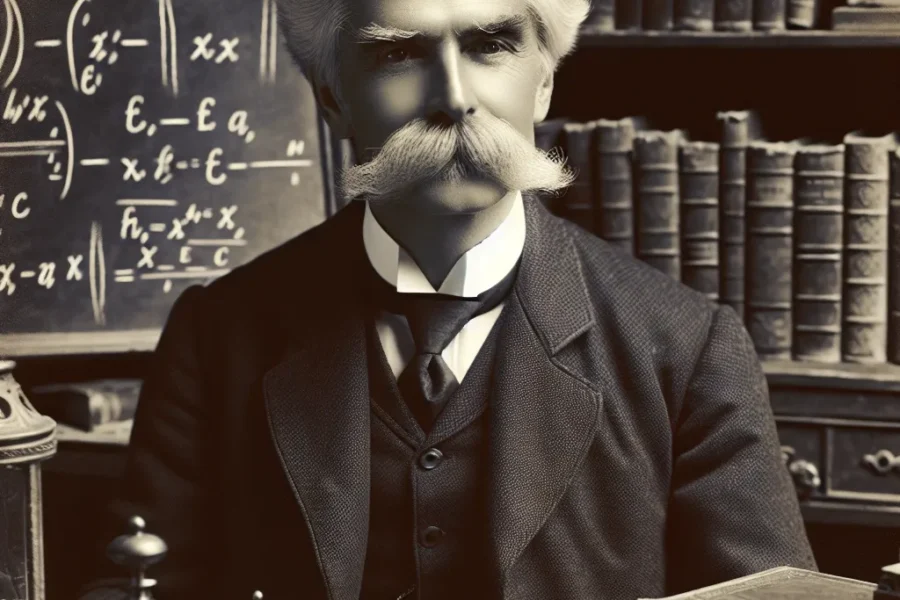Grover Cleveland, the 22nd and 24th President of the United States, remains a figure of historical fascination for various reasons, from his non-consecutive terms in office to his intricate political maneuvers. Among the many questions that surround him, one particularly curious query often emerges: What was Grover Cleveland’s IQ score? This question delves into the realms of historical analysis, psychological profiling, and the very essence of what constitutes intelligence.
If you are looking for legitimate IQ Tests which pass the entry bar for Mensa, see our IQ Tests.
Grover Cleveland’s IQ score is not a matter of public record, and indeed, during his lifetime (1837-1908), the concept of IQ (Intelligence Quotient) had not yet been standardized. The first workable IQ test was developed by Alfred Binet and Théodore Simon in 1905, nearly two decades after Cleveland left office for the final time in 1897. Even if IQ testing had existed during Cleveland’s era, it is unlikely that a sitting or former president would have undergone such examinations, given the nature of politics and privacy at the time.
Nonetheless, understanding the caliber of Cleveland’s intellectual capacity can be approached through several indirect means. His education, decision-making skills, eloquence, and accomplishments in his career all serve as proxies for traditional IQ scores. Educated in a modest setting, Grover Cleveland did not pursue an extensive formal education due to economic constraints. Instead, he was largely self-taught, which suggests a high level of intrinsic motivation and intellectual curiosity. By apprenticing in a law office and eventually passing the bar exam to become a lawyer, Cleveland exhibited strong analytical and cognitive abilities.
Cleveland’s political career also serves as testament to his intellectual acumen. Rising from the ranks of being the Sheriff of Erie County and Mayor of Buffalo, to becoming the Governor of New York, and ultimately the President of the United States, Cleveland demonstrated a keen understanding of political strategy, law, and governance. His non-consecutive terms (1885-1889 and 1893-1897) portray a resilience and adaptability that indicate not just intelligence, but also strategic brilliance.
His presidency was marked by several acts and decisions that required substantial intellectual application. For instance, Cleveland’s staunch stance against corruption and patronage in government earned him the nickname “Grover the Good.” His administration was also characterized by fiscal conservatism and efforts to reduce tariffs through the Wilson-Gorman Tariff Act. His vetoes of numerous private pension bills demonstrate his meticulous scrutiny of legislation—believing that fiscal responsibility and integrity were paramount for national prosperity.
Moreover, Cleveland’s handling of economic troubles, such as the Panic of 1893, demanded advanced economic understanding and crisis management skills. His decision to use federal troops during the Pullman Strike, controversial as it may have been, demonstrated his rational yet pragmatic approach to complex social and economic issues. Such decision-making processes provide insight into the type of higher-order thinking, problem-solving ability, and situational analysis that IQ tests are designed to measure.
Another aspect to consider is Cleveland’s communication skills, considered sophisticated and articulate. His speeches and letters reflect not only a command of language but a depth of understanding of diverse topics, ranging from economics to jurisprudence. Linguistic proficiency is often closely associated with higher IQ scores, as it requires both analytical and creative thought processes.
Although Grover Cleveland’s precise IQ score will forever remain a matter of speculation, attempts to deduce such a figure often rely on psychological historiography—a way of retrospectively analyzing a person’s intellectual capabilities based on their achievements and life circumstances. Various studies have tried to estimate the IQs of historical figures, applying methodologies that involve assessing biographical and historical data. Some of these retrospective analyses have placed Cleveland’s IQ in a somewhat generous range. According to the Cox-Cattell estimates, which rate U.S. presidents’ psychological qualities posthumously, Cleveland’s IQ score is speculated to be around 130 to 135. This range, categorized as “very superior intelligence,” is derived from his educational background, professional achievements, and complex decision-making abilities.
However, it’s essential to understand the speculative nature of such estimates. IQ tests aim to provide a quantifiable measure of intellectual ability, typically encompassing logic, reasoning, and problem-solving skills. Retrospective evaluations, while insightful, cannot encapsulate the full complexity of an individual’s intellect, personal traits, or contributions. Cleveland’s era lacked the scientific rigor and standardized testing that we now associate with IQ assessments. Thus, while speculative estimates can offer intriguing insights, they should be interpreted with caution.
In modern times, the fascination with deducing historical figures’ IQ arises from a collective desire to measure greatness and understand the traits that contribute to exceptional leadership. Nevertheless, intelligence is multi-dimensional. Attributes such as emotional intelligence, social skills, creativity, and practical intelligence also play crucial roles, especially in complex leadership scenarios.
Grover Cleveland’s legacy should be appreciated not through an elusive IQ score but through his demonstrated capabilities, ethical standards, and contributions to American society. His vast reading habits, legal expertise, and legislative impact all point to a mind of considerable capacity, one that navigated the challenges of governance with acumen and integrity.
In summation, while we can never ascertain Grover Cleveland’s IQ score with precision, his life and career exhibit traits of high intellectual aptitude, informed decision-making, and ethical governance. These aspects of his character and accomplishments underscore the limitations of numeric measures in capturing human potential and legacy. His story, therefore, is best appreciated through the rich tapestry of his professional and personal endeavors rather than through the lens of a single, speculative number.



Leave a Comment